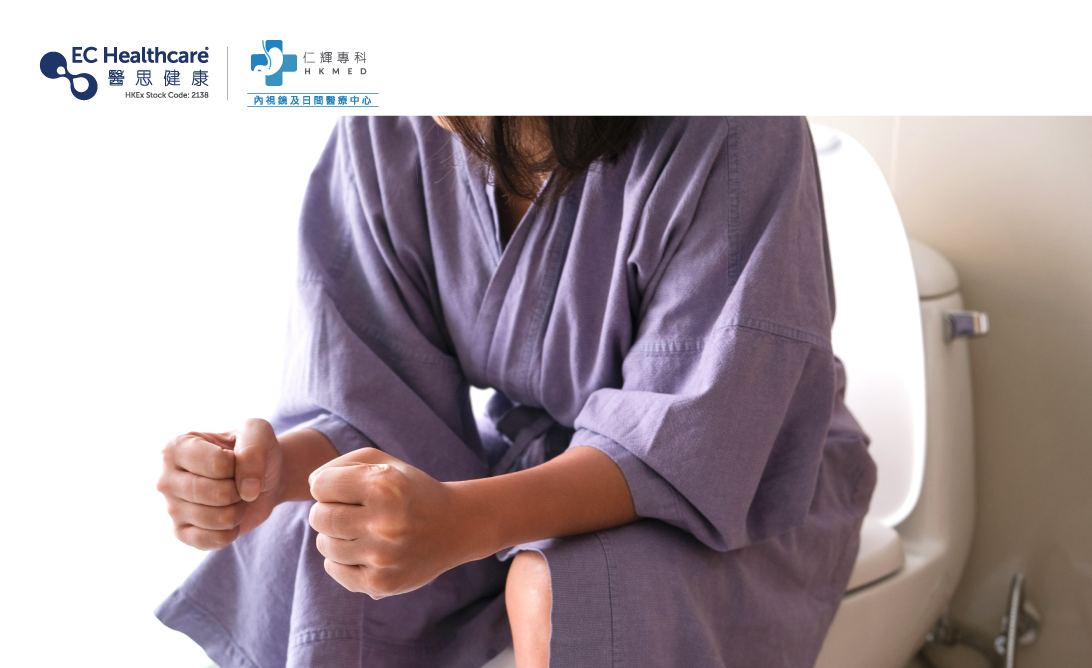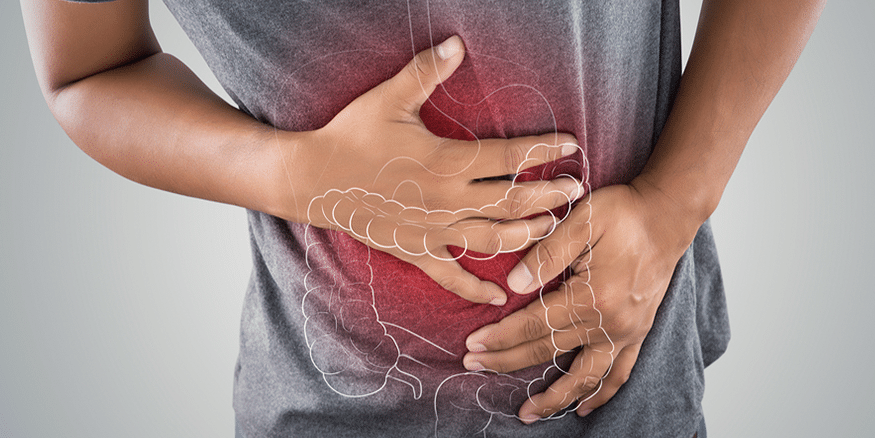Break the Silence on Constipation: Test Yourself and Live Comfortably!


Are you troubled by a bloated abdomen and struggling with bowel movements? Don’t be ashamed - constipation is a common gastrointestinal problem that affects 1 in every 7 Hong Kongers. You need not be embarrassed when seeking medical attention.

What is constipation?
Constipation is the difficult passage of stools that are too dry or hard. You feel the urge to poop, but nothing comes out from your bottom. Constipation is not a disease but can be a precursor to other diseases. Prolonged constipation can cause loss of appetite, abdominal pain, intestinal obstruction, anal fissure, etc. If you have the following symptoms, you may be suffering from constipation:
-Straining during defaecation
-Abdominal pain and bloating
-Hard stools
-Difficulty in defaecation or inability to empty the bowel
-Passing fewer than three stools a week

What causes constipation?
Constipation in modern people is often related to dietary habits and stress. The 5 most common causes are:
-Insufficient intake of water and vegetable fibre leads to hard stools
-Lack of exercise slows down the bowel movement
-Stress can tense the intestinal muscles
-Pregnancy can exert pressure on the bowel
-Irritable bowel syndrome (IBS) or other conditions
How can I know if I have constipation?
It takes 40 hours for food to be absorbed and completely excreted from your body. So, considering eating 3 meals a day, not pooping every day doesn’t mean that you’re unhealthy. Any frequency between 3 times a day to 3 times a week can be considered normal.
In other words, if you do your business less than twice a week, you are having constipation.
How can I prevent and treat constipation?
City dwellers often lack exercise, fibre consumption and water intake, leading to slow bowel movements. The stools will lose moisture when staying in the intestines over time and become hard.
To soften the stools for easier passage, you should eat more fibre-rich foods and replenish moisture, such as eating oatmeal, bananas, apples, red kidney beans, green vegetables, etc. You should also drink 6 to 8 glasses of water every day. Some simple exercises such as air cycling, waist twists and taking a walk can help stimulate bowel movement and digestive juice secretion.
If the above remedies fail to treat your constipation problem, seek medical attention as soon as possible. Your doctor may prescribe a stool softener or other treatment modalities to tackle your condition.










